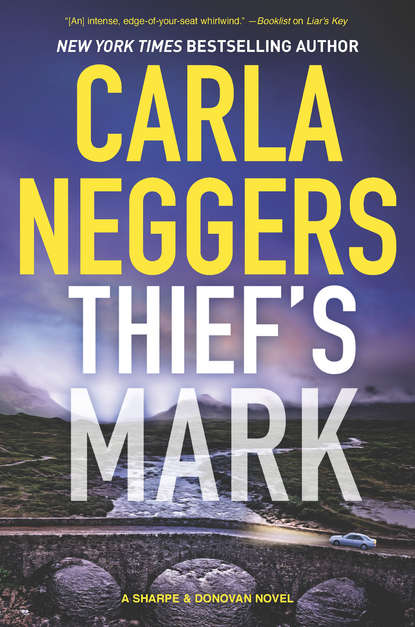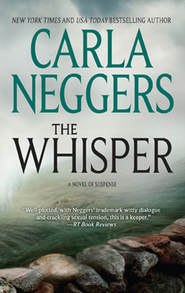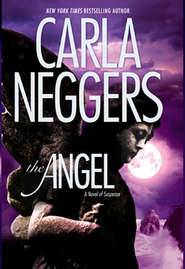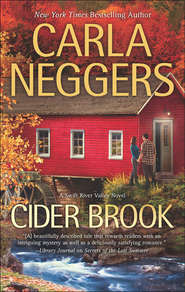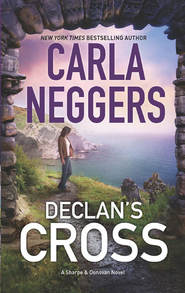По всем вопросам обращайтесь на: info@litportal.ru
(©) 2003-2024.
✖
Thief's Mark
Автор
Год написания книги
2019
Настройки чтения
Размер шрифта
Высота строк
Поля
Colin took in an audible breath. “Quit stalling, Wendell.”
“All right, all right. It’s tricky timing, dealing with a break-in and having your FBI granddaughter and her FBI husband show up. It looks as if my intruder had a look around in here. He didn’t toss the place, but there are signs.” He pointed to a small, dark wood box on a shelf by the fireplace. “He got in there. It doesn’t have a lock but there’s no label saying what’s inside. Never occurred to me anyone...” He didn’t finish, instead plopping onto a chair across from Emma.
Colin remained on his feet. “What’s in the box, Wendell?”
He clearly didn’t want to answer, but Emma knew. She sighed. “It contains the stone crosses our serial art thief sent Granddad after his heists.”
“Oliver York,” her grandfather said. “I don’t mind saying his name out loud.”
Emma noticed a muscle work in Colin’s visibly tight jaw but he said nothing. For most of their Irish honeymoon, they’d managed to avoid talking about, thinking about or dealing with Oliver, a wealthy Englishman with a tragic past. He was a self-taught expert in mythology, folklore and legends, a black belt in karate, a sheep farmer, a dashing Londoner with an apartment on St. James’s Park and an international art thief. He’d launched his art-theft career on a bleak November night ten years ago when he’d slipped into a home in Declan’s Cross, a small village on the south Irish coast. He’d walked off with paintings—including two prized Irish landscapes by Jack Butler Yeats—and an extraordinary sixteenth-century silver mantel cross. The police came up empty-handed in their investigation.
Six months later, after a small Amsterdam museum was relieved of a relatively unknown seventeenth-century Dutch landscape, Wendell Sharpe received a package containing a brochure of the museum and a polished stone, about three inches in diameter, inscribed with a Celtic cross, a miniature version of the one stolen in Declan’s Cross. More thefts followed in at least eight cities in England, Europe and the US. After each brazen heist, another package with another cross-inscribed stone arrived at Wendell Sharpe’s Dublin home.
Last fall a murder in Boston put Emma and Colin in contact with an eccentric mythology consultant advising on a documentary—Oliver York, it turned out, working under an alias. He was their elusive art thief. Without question. That didn’t mean he would ever face prosecution. He knew it, and they knew it. Over the winter, the stolen art—every piece except an unsigned landscape stolen on that first heist in Declan’s Cross—had been returned to its owner, anonymously and intact. Oliver, in the meantime, had put his unique skills, knowledge and experience to work for British intelligence.
Given the unique relationship he and her grandfather had, Emma wasn’t surprised to hear Oliver York’s name, but she’d have preferred not to.
She shifted back to her grandfather. “Is anything else in the box?”
“A few photographs I took years ago in Declan’s Cross.”
“Would they explain to an intruder the significance of the stone crosses?”
Her grandfather shrugged. “Probably not by themselves. They’d be a clue, though. There’s nothing specific in the box or anywhere else in here that connects the stones and the photographs to the thefts or to Oliver. Nothing’s missing. The box lid was on crooked. That’s the only reason I know the intruder got into it.”
“Had the box been sealed?” Colin asked.
“No. Our perp didn’t need to use his glass shard to cut through tape.”
Emma forced herself to stay focused. Her grandfather was restless, fidgety. “You’re sure the box was opened during the break-in?” she asked. “Could someone else have opened it on a different occasion and you didn’t notice?”
“I’m positive,” he said without hesitation. “And I didn’t leave the lid on crooked and forget.”
Colin’s gaze steadied on her grandfather. “You have a soft spot for Oliver.”
“He’s an interesting character.”
“You visited him at his farm in January. You stay in touch.”
“So?”
Stubborn as well as fidgety and restless. Emma eased onto her feet. “Granddad, as you pointed out, Colin and I have no jurisdiction here. We’re family. We want to help.”
“I know you do.” He uncrossed his legs and tapped his fingertips on his knees. “I didn’t want to involve you. It’s your honeymoon.”
“Have you told Lucas about the break-in?” Emma asked him.
“No. No point. There’s nothing he can do. He’s in New York on business. With the time difference and everything—no point bothering him. I didn’t tell your father, either. I can handle this situation on my own. I’m not five.”
“You need to get the police in here, Wendell,” Colin said.
He rose stiffly, with a small grunt, as if he was in pain. How much was a bit of an act Emma didn’t know. Colin sucked in a breath—it was a sign, she knew, he was on his last thread of patience. She pointed toward the back of the house. “Did you go straight to the kitchen when you got in?”
Her grandfather nodded. “Yeah. Maybe I heard something. I don’t know.”
“Was the back door open or shut?” Colin asked.
“Partially open, like it hadn’t been latched properly and the wind caught it. Then I saw the glass and went into the bedroom and saw the broken window. I figured whoever it was must have heard me coming in through the front door and bolted out the back door. Someone looking for cash, drugs—maybe just getting out of the rain.”
Colin shook his head. “People don’t break a window to get out of the rain.”
Emma appreciated the back-and-forth between them. They were both strong, independent-minded men, each in his own way. Her grandfather grunted. “You know how to sweat a guy, Special Agent Donovan.”
He grinned. “You’re just out of practice. That was nothing. We’ll see what the gardai want to do.”
“Lock me up.”
“Can’t say I’d blame them but they probably won’t. At least not tonight.” Colin dug his phone out of his jacket. “Catch your breath, Wendell. I’ll make the call.”
* * *
Emma wasn’t surprised when the gardai couldn’t do much, given the delay and little physical evidence. At this point, it was unlikely they’d locate passersby who might have seen something. To complicate matters, the broken window opened onto a small, fenced terrace with a private gate—which her grandfather had left unlocked. Someone walking through an unlocked gate wasn’t likely to draw attention.
Once the gardai left, he insisted she and Colin return to the Shelbourne. “Go,” he said, opening the front door. “Enjoy yourselves. Room’s paid for. It’s too late to get a refund.”
“I don’t like leaving you here alone,” Emma said. “You could always stay at the hotel, too.”
“Three’s a crowd anytime but on a honeymoon?” He shuddered. “No way.”
She smiled. “I didn’t mean in the same room.”
Her grandfather grinned. “I bet you didn’t. Relax. I’ll be fine. If this guy wanted to harm me, he’d have jumped me when I came home instead of scooting out the back door.”
“That doesn’t make me feel better, Granddad.”
“Lock up,” Colin said. “Gate, windows, doors. We’ll give you a hand.”
“I don’t need a hand. Go.”
Emma hugged him, kissing his cheek. “Call Lucas and fill him in or I will. Thanks for our night at the Shelbourne. We’ll stop by before we leave for London tomorrow.”
He returned her hug, kissed her on the cheek. “Always good to see you, Emma.” He turned to Colin. “You, too, Colin. Welcome to the family. We’ll do better than a broken window next visit.”
Once they reached the street, Colin glanced at Emma. “He’ll have the whiskey before he locks up the place.”
“No doubt. He’s tired. He doesn’t like to admit he’s not forty anymore.”
Colin slipped an arm around her. “We still have our fancy room for the night.”





